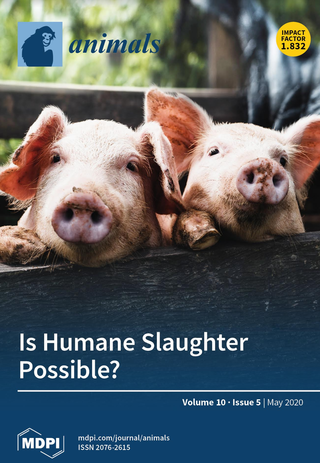Play
Analogies Between Human and Animal Suffering
A response to one of my critics.
Posted August 26, 2020

In a recent post, I discussed a paper I published with Heather Browning in the journal Animals on whether humane animal slaughter is possible. Since I have received numerous replies, I would like this opportunity to answer the questions that have been raised and respond to the criticism that has been uttered against our position.
(Context: We have defended the claim that animal slaughter can never be truly humane since animals will inevitably lose the possibility of future welfare — consisting of pleasure and other positive affective states such as excitement — if they are killed prematurely.)
Reader Comment:
I am reminded of Temple Grandin, who invented ways to reduce — somewhat — cattle's suffering before murder.
Re: "To think that animal farming is inhumane does not directly imply that it is impermissible. You might, for instance, consider the killing of humans inhumane. But that does not imply that it is not permissible under some circumstances."
I don't think the analogy stands here. A proper analogy would be forced trillion and quadrillion mass breeding and then raising little humans on worldwide farms for the sole purpose of slaughter. Would that be permissible? And regarding — death in nature arguments, one would hope that scientific humans would not compare themselves to wild animals and think that it somehow constitutes an argument.
Anyway, if it weren't for horrendous animal abuse and billions of people having weird penchant for eating corpses, the world wouldn't be in this mess.
Walter Veit Response:
Whereas I have responded to one comment yesterday that criticized us for going too far, this comment argues that we don't go far enough. I like this back-and-forth since it allows us to make progress in the debate, so here are my thoughts on the issues raised by the commentator.
Firstly, I did not claim that our treatment of millions of animals in slaughterhouses is better than the inhumane treatment of humans. There is no principled difference here that makes our treatment of humans somehow special. What matters is respect for the animals' lives, though what I mean here is not some kind of divine dignity attached to the idea of their life, but rather a sense of how well their lives are going. What is their welfare like? Are they doing well?
Treating animals humanely is to treat them with respect for their welfare. It has nothing to do with our infringement on their autonomy. Indeed, there could be many cases where we should interfere with an animal's autonomy in order to improve their wellbeing. In any case, I sympathize with the commentator's notion that our treatment of animals is vastly incoherent.
The point we were trying to make is that one doesn't have to see this debate entirely in either black or white. There are tradeoffs, a variety of different values at play, and simple gaps in our knowledge.
To treat animals well demands that we improve their lives wherever we can.


